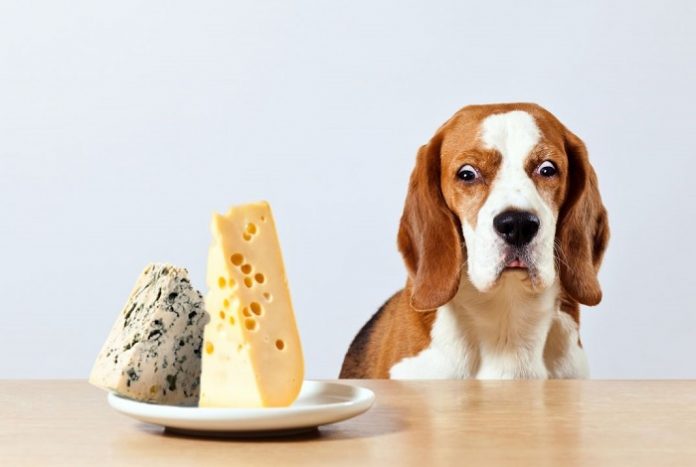Can Dogs Eat Cheese? Dog owners should keep in mind when adding new supplements to a dog’s diet to consult a veterinarian if their pet has a sensitive stomach, food allergy, lactose intolerance or a chronic illness.
When giving cheese to a dog’s diet, owners should take into account the following factors:
Some cheeses are salty – certain types of cheese and especially those cheeses are quite sweet. If your dog eats a lot of this cheese, there is a possibility of sodium poisoning. Most dogs with more drinking water cancel out the amount of salt they eat, but the best advice is to never eat such cheeses. Symptoms of sodium poisoning include increased thirst, malaise, vomiting, diarrhea, and loss of appetite. Salty foods should be avoided anyway.
Some cheeses can be greasy. If you have a fat dog that has been prescribed by a veterinarian, you should not give cheese to your diet. Furthermore, you should avoid if your dog suffers from pancreatitis because fatty and high-calorie foods are closely related to this disease.
Some types of cheese contain harmful additives such as garlic, leeks, chives and the like.
Dogs, as well as humans, maybe lactose intolerant or lack enzyme. If you do not know if your dog is among them and you have not given him cheese before, give him a small piece of cheese and analyze what will happen in the next 24 hours, especially if the dog has stomach problems, changes in urination and the like. If you know that your dog is lactose intolerant, do not give him cheese, or if you want, choose the type of cheese with the lowest amount of lactose, such as goat cheese.
Permissible types of cheese in the diet:
Young cheeses and mozzarella are on the list of safe nutrients for the dog and there is a possibility to give some of the cheese before lunch or after lunch as a side dish. Mozzarella is quite high in calories, so we can choose the one with the lowest percentage of fat.
German cheese is unsalted cheese and is very useful for your dog. This type of cheese is rich in protein, calcium, and vitamins, as well as probiotics that contribute to the health of your pet’s stomach and intestines. In addition to unsalted, there is a variant of non-fat German cheese that can also be part of your dog’s diet.
Cheese as the cream is unsalted and with the lowest percentage of fat content that is also allowed in your dog’s diet. From time to time you can give it as a dietary supplement.
Moldy cheese should not be given in the dog’s diet because it contains a specific micro toxin called Roquefortine C which is poisonous to your dog.





